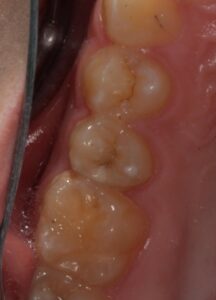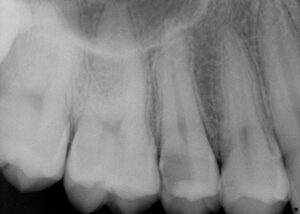Have you ever gone to the dentist and wondered why they need to take xrays when everything feels perfectly fine? Have you ever wondered if they are truly necessary?
Dental xrays allow dentists to visualize patients' teeth from the inside out. It allow dentists to check the health of the bones and the teeth that a visual exam alone cannot do.
Xrays help dentists detect problems that often are not visible with the naked eye. When dental xrays are taken periodically, a dentist can catch cavities earlier, leading to more conservative treatment options and hopefully prevent bigger and more expensive options later on.
In the picture below, a clinical photo and visual exam alone does not show the extent of a cavity. Only an xray could show the extent of decay before beginning any treatment. This allows a patient to make an informed decision about their future care.
We understand that some patients are concerned about radiation exposure, but modern digital xrays are incredibly safe and vital to maintaining good oral health.
If you would like to schedule an appointment please contact us at
817-453-2983 or
schedule an appointment today and we would be happy to answer any questions you may have.






